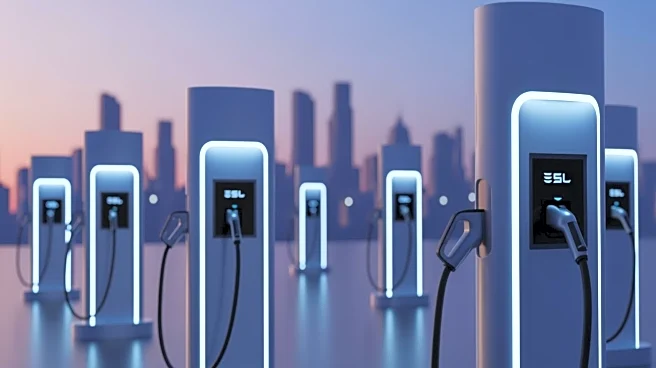What's Happening?
Tesla experienced a significant increase in demand following the U.S. government's decision to end electric vehicle (EV) tax credits on September 30, 2025. In the third quarter, Tesla delivered 497,099
units, marking a 7.4% year-over-year increase, and boosted its revenue by 11.6% to $28 billion. Despite these record sales figures, the company did not achieve record profits. Tesla CEO Elon Musk had previously warned of challenging quarters ahead, but the unexpected surge in demand due to the tax credit changes provided a temporary boost to sales.
Why It's Important?
The end of EV tax credits has significant implications for the electric vehicle market in the U.S. While Tesla saw a surge in demand, the long-term impact could lead to decreased affordability for consumers, potentially slowing the adoption of electric vehicles. This situation highlights the delicate balance between government incentives and market dynamics. Tesla's inability to translate increased sales into higher profits may also reflect broader challenges in the EV industry, such as production costs and supply chain issues. Stakeholders in the automotive sector are closely watching how these changes will affect market competition and consumer behavior.
What's Next?
Tesla and other EV manufacturers may need to adjust their strategies in response to the changing landscape of government incentives. Companies might focus on cost reduction and efficiency improvements to maintain competitiveness. Additionally, the industry could see increased lobbying efforts to reinstate or introduce new incentives to support EV adoption. The broader market will be observing how Tesla navigates these challenges and whether it can sustain its growth momentum without the support of tax credits.
Beyond the Headlines
The shift in government policy regarding EV tax credits could have long-term implications for environmental goals and the transition to sustainable transportation. As incentives diminish, the pressure on manufacturers to innovate and reduce costs intensifies. This could accelerate technological advancements in battery efficiency and production processes. Moreover, the policy change may influence consumer perceptions of EVs, potentially affecting public sentiment towards sustainable practices.









